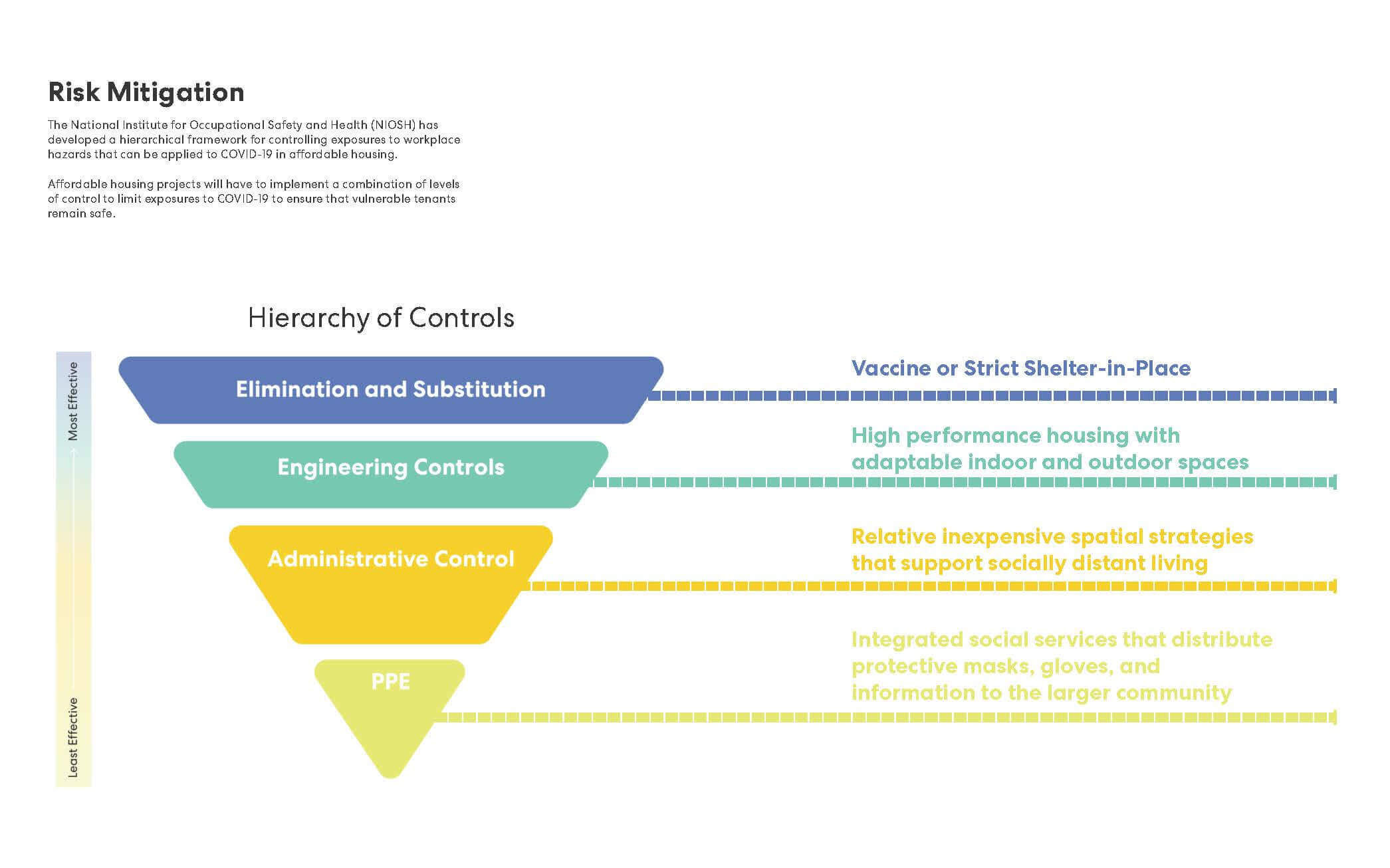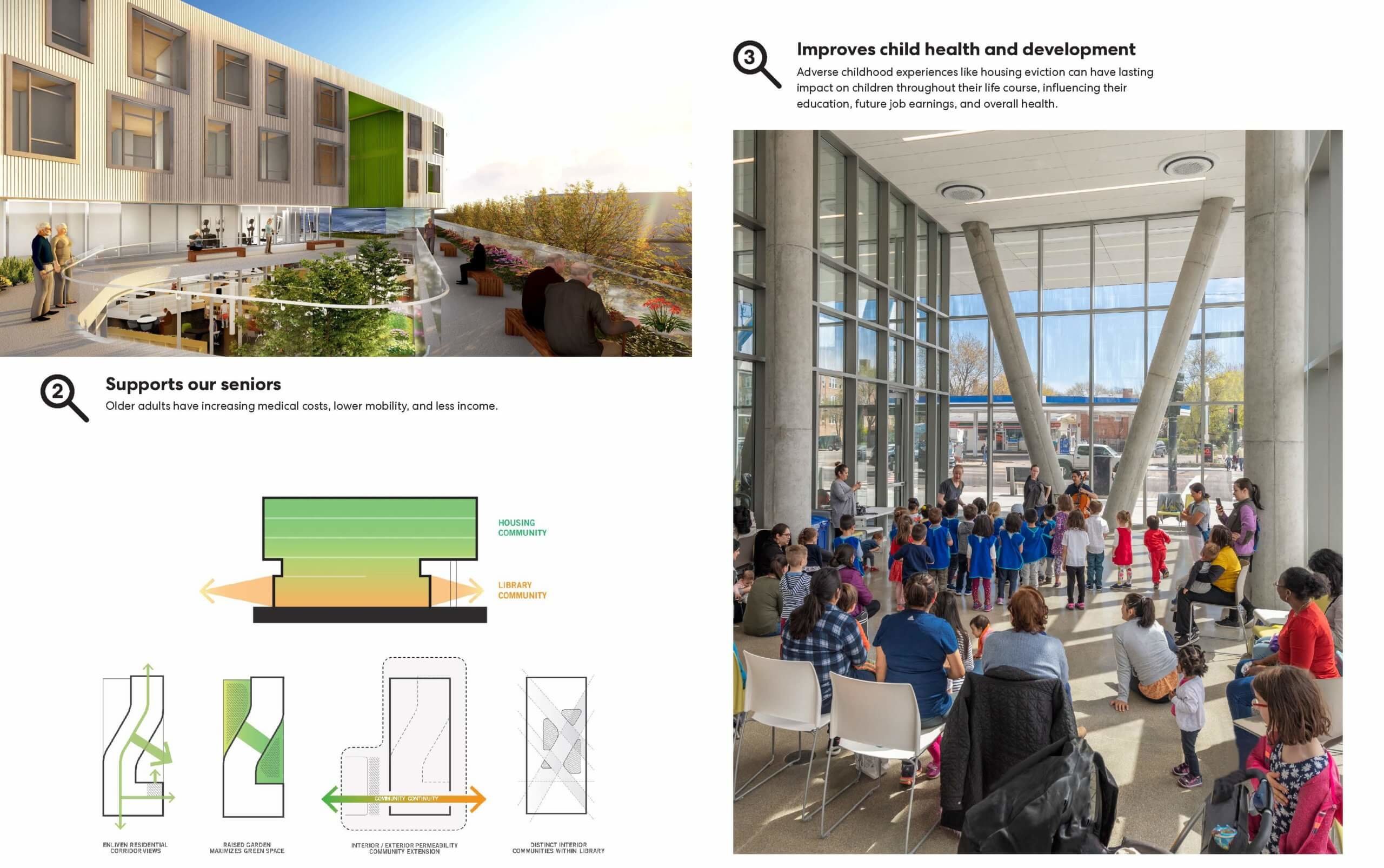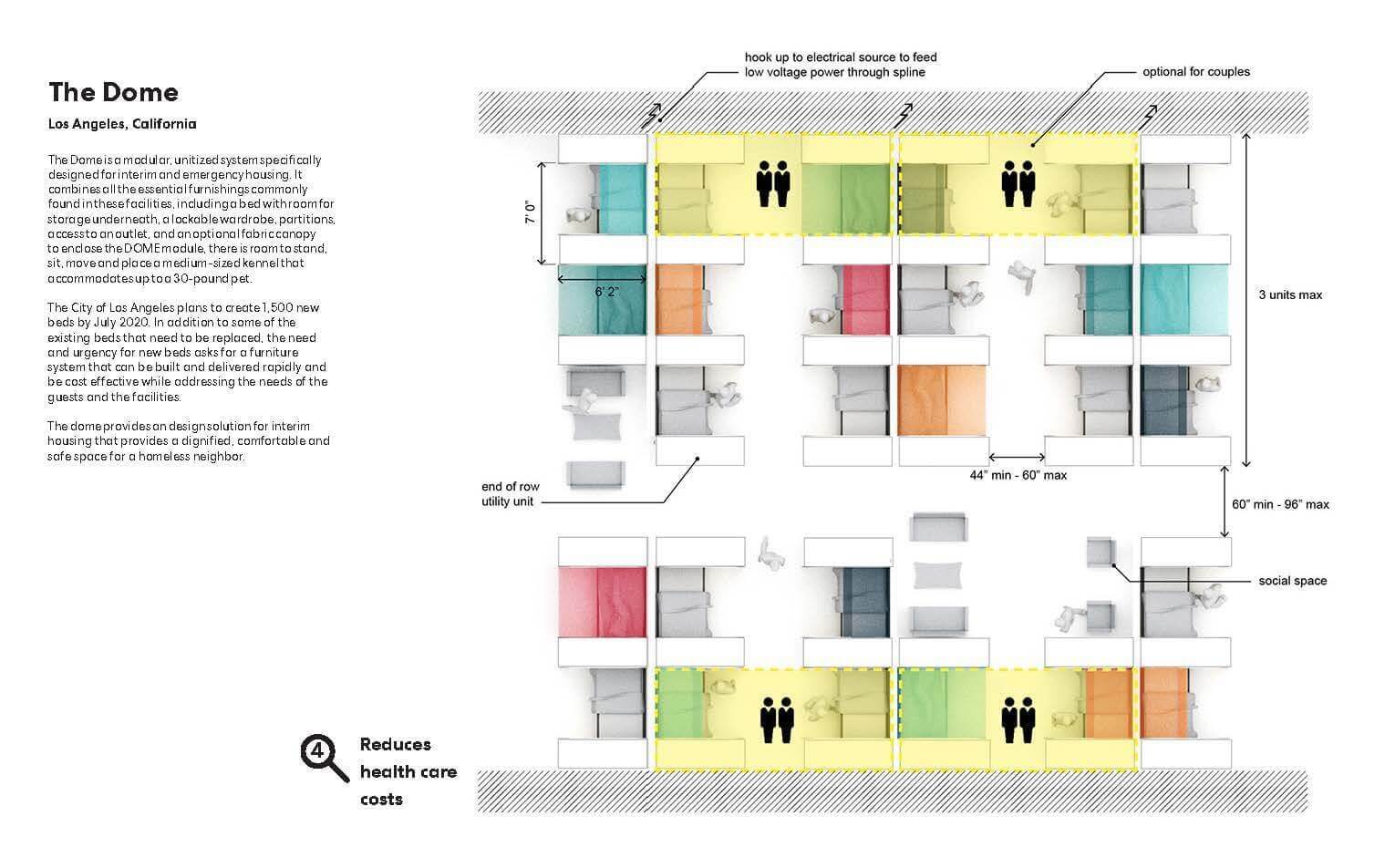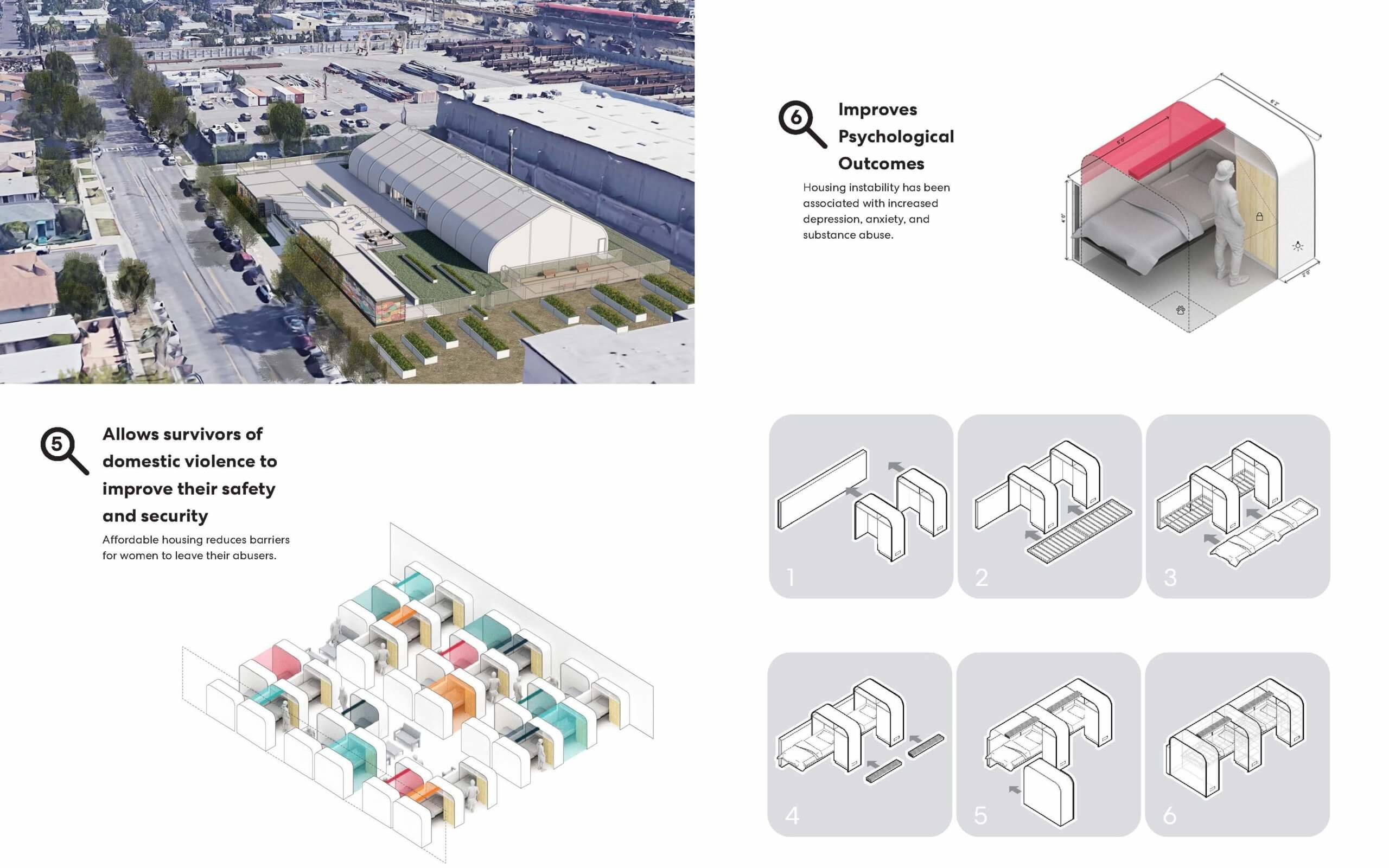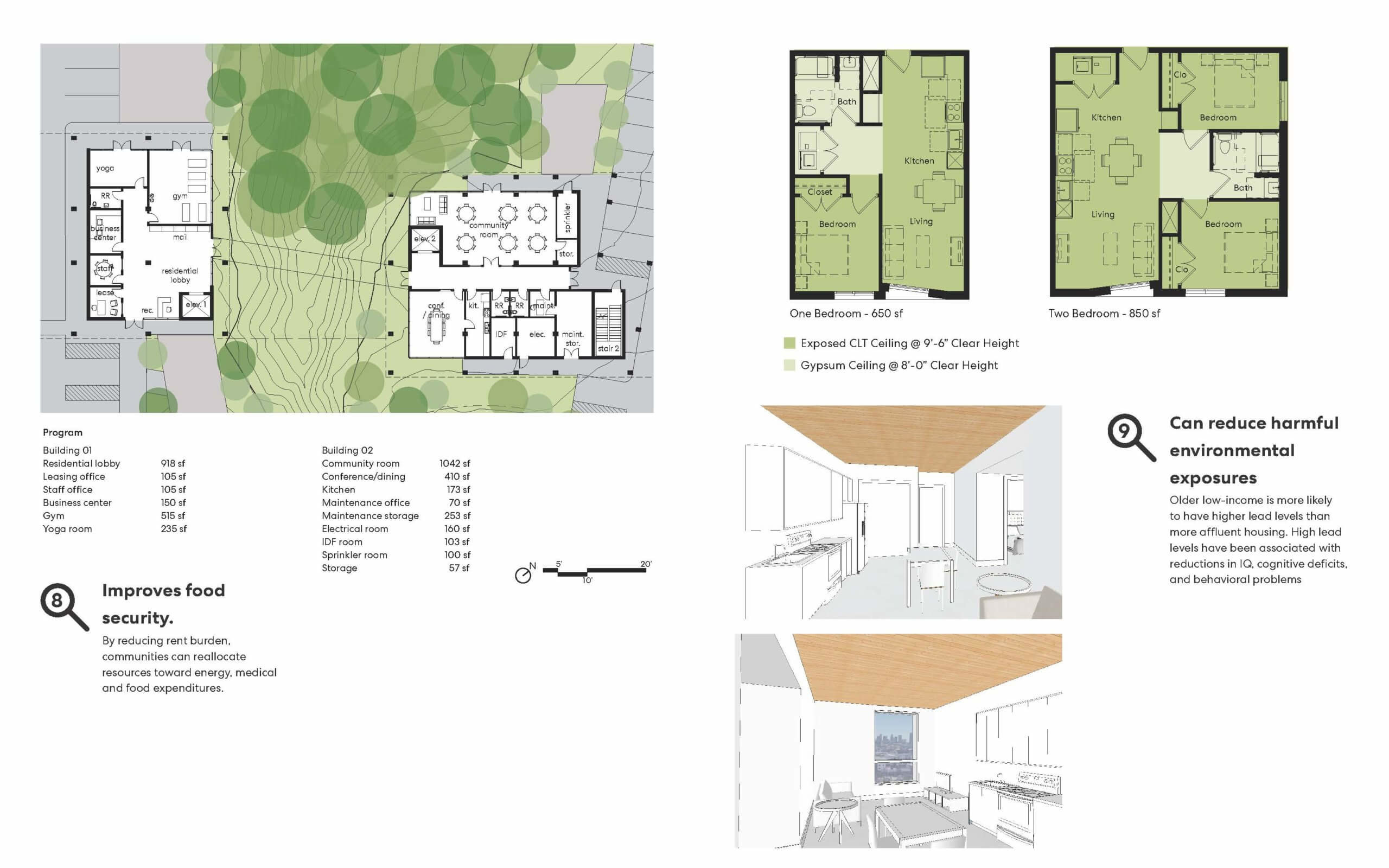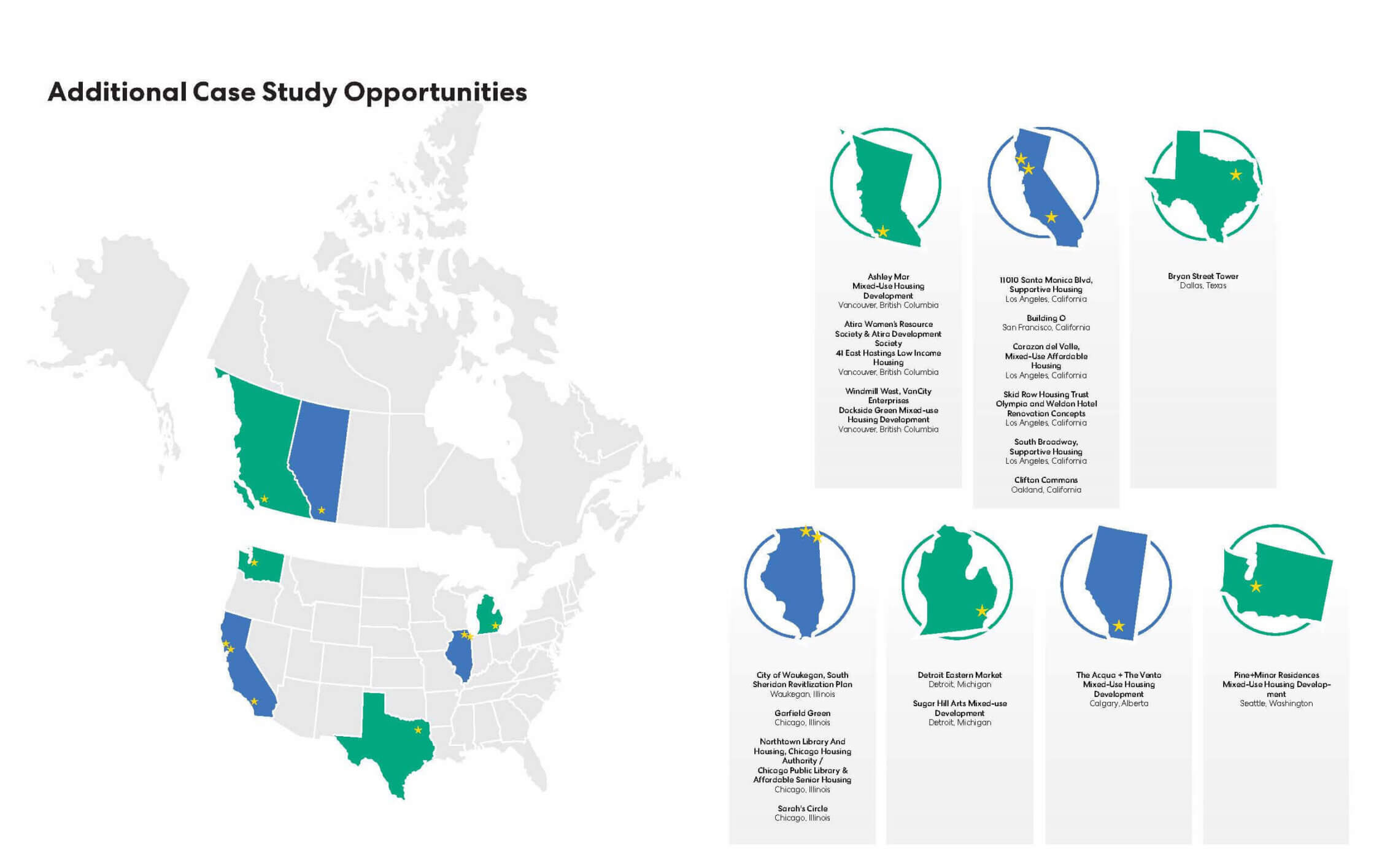“To our knowledge, there is no study identifying how interior design can impact affordable housing residents’ mental and physical health and safety. Low-income, densely populated indoor spaces are on the frontlines of pandemic,” says Erika Eitland, ScD, a research analyst at Perkins&Will specializing in public health. “Our research is going to look at COVID-19’s impacts on unemployment, access to healthcare, food insecurity, and energy insecurity, too.”
Eitland and her team, who are based in Boston, will conduct post-occupancy evaluations (POEs) of affordable housing projects across the U.S. (POEs are meticulous, data-driven assessments of the health impacts of built environments on the people who’ve lived in them for an extended period of time.) From there, the team will conduct virtual interviews with focus groups to identify the greatest challenges faced by communities living in affordable housing—and the greatest opportunities. These include space layouts, materials, indoor air quality, and costs. The impacts of climate change-related threats will also be explored. Researchers will then compile the information in an interactive digital toolkit accessible to all.
“Using research to inform design decisions that can support underrepresented communities around the country—and, indeed, around the world—is an integral part of our firm’s commitment to justice, equity, diversity, and inclusion, or JEDI,” Eitland adds. “Our goal is to identify design principles and features that are flexible, scalable, and maintainable in affordable housing units. We want everyone to have access to positive interior design.”
In a clarion acknowledgement of the importance and timeliness of this research, the ASID Foundation Research Grant Program this week awarded Perkins&Will—one of only two grant recipients this year—its highest funding amount.
“We are honored to support research that puts focus on people in need that can greatly benefit from evidence-based design,” says ASID Foundation Chair Carolyn Ames Noble. “The resources generated from these projects will propel designers to make informed decisions in their projects that will make a positive difference to many.”
“Our gratitude to the ASID Foundation is immeasurable,” says Stephen Messinger, an architect who leads the Perkins&Will Housing Affordability Task Force. “Now, more than ever, we need to acknowledge the value of the collective voices of the people for whom we design our spaces. Using this research project as a tool to improve our practice can improve the lives of millions of people who need our help the most.”
